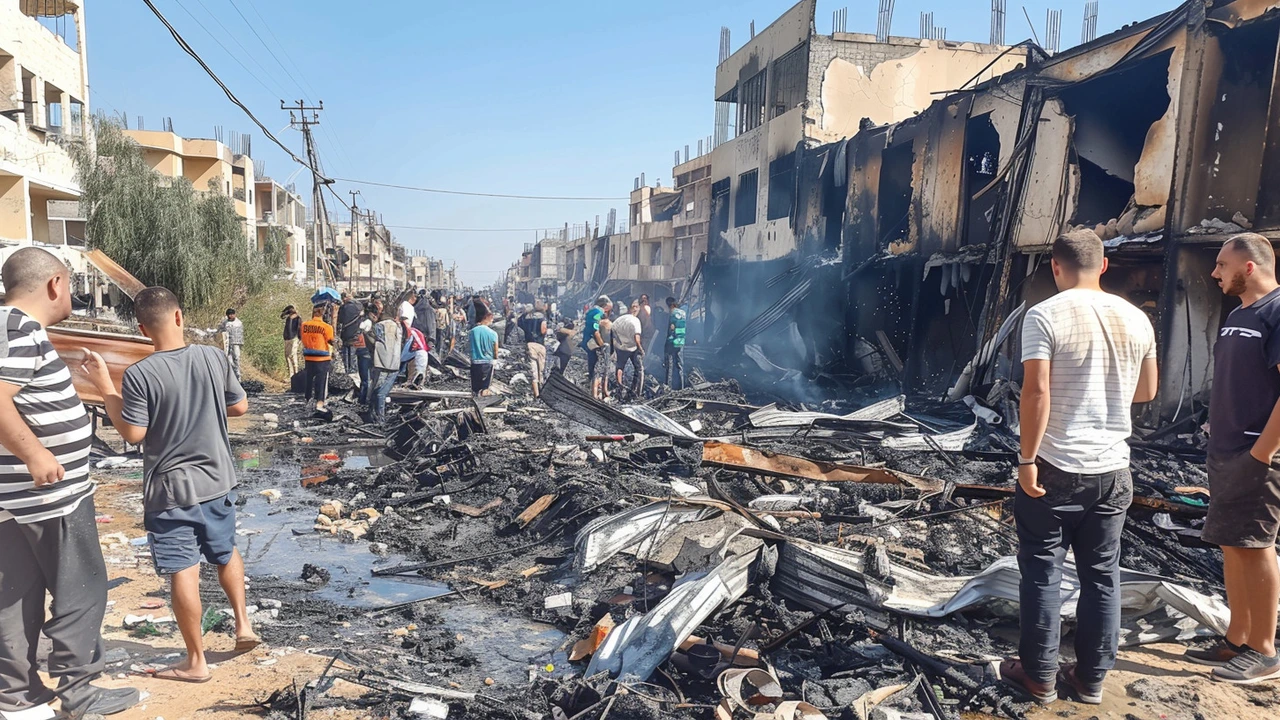Rafah: What You Need to Know Now
Rafah sits at the southern tip of Gaza, right on the border with Egypt. That makes it a major crossing point and a lifeline for people escaping conflict, getting medical care, or receiving aid. When Rafah is closed or hit, the impact is immediate: hospitals, families and relief groups feel it within hours.
The Rafah crossing is the only Gaza-Egypt border gate not controlled by Israel. Egypt and international agencies use it to move patients, humanitarian cargo and diplomats in and out. Because it’s so strategic, any change in its status often signals bigger shifts in the conflict or diplomatic moves behind the scenes.
Humanitarian reality on the ground
People in Rafah face shortages of food, water, power and medicine during spikes in violence. Tents and makeshift shelters multiply fast when families flee other parts of Gaza, and local clinics get overwhelmed. Aid groups usually call Rafah a priority route — but access depends on politics and security, not just need.
Journalists and aid workers often report slow, bureaucratic delays at the crossing. That delays lifesaving supplies like sterile equipment and oxygen. Even when convoys are allowed, getting distribution right across crowded neighborhoods is a massive challenge.
What to watch in the news
Track three things: the opening status of the Rafah crossing, statements from Egyptian authorities, and UN or ICRC updates. Those clues tell you whether aid will move or whether civilians will be able to leave. Also watch hospital reports from Rafah — they’re a real-time barometer of how severe conditions are.
If you’re following Rafah because you care about people there, focus on reputable sources: international agencies, verified local reporters, and official government notices. Be wary of single social posts that lack confirmation — they often spread panic or false details.
Travel advice is simple: Rafah is not a safe travel destination during active conflict. Borders can close with little notice. If you have family or contacts there, plan for communication interruptions and have multiple ways to check on them, like messaging apps, phone callbacks or contacts at aid groups.
Want to help? Look for established charities with a track record in Gaza and Egypt. Small donations to medical supply funds or emergency food programs often move faster than large, new fundraising drives. Check charity credentials before giving.
We’ll keep Rafah updates on this tag page as stories develop. Bookmark the page, follow verified reporters, and sign up for alerts if you need real-time notices. Rafah’s situation changes quickly; staying informed makes a real difference for people caught in the middle.
Rafah often becomes a focus during diplomatic talks because Egypt, Israel and international agencies must agree on access. That gives outside countries leverage to push for pauses or corridors to protect civilians. If you follow updates, note statements from Cairo, Jerusalem and the UN — they hint at whether any temporary deals are possible. For families, prepare basic documents and a small emergency kit if movement becomes possible soon.
International Outcry Erupts Over Israel's Airstrike in Gaza's Rafah
By Sfiso Masuku On 28 May, 2024 Comments (15)

Israel is under intense global scrutiny after an airstrike in Gaza's Rafah resulted in the deaths of dozens, mostly civilians. The strike, aimed at senior Hamas members, also hit a crowded displacement center, sparking international condemnation and calls for an investigation and ceasefire.
View More




